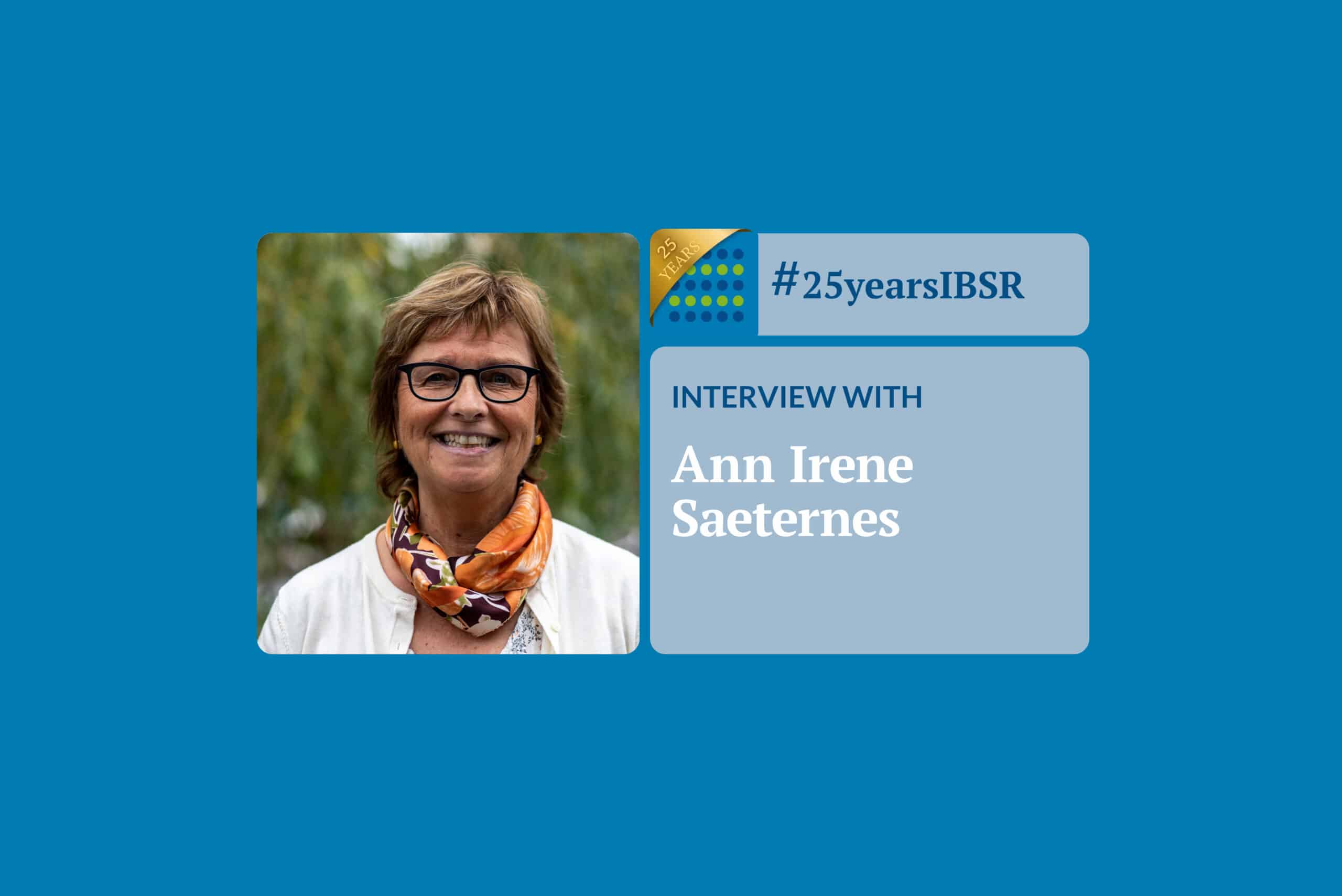
19 April 2023
We need to stick together!
#25yearsIBSR
Eeva Rantama: How has Norway benefited from Interreg Baltic Sea Region?
Norway has been part of the Interreg Baltic Sea Region Programme since the very beginning. And I have been lucky enough to follow this Programme all those years: first on the national level in the sub-committee, and then as a member of the decision-making body of the Programme.
After the fall of the iron curtain, many Norwegian cities and regions established cooperation agreements with counterparts, especially in Estonia, Latvia, Lithuania, and Poland that last till today. Interreg projects were an opportunity to support these partnerships and turn these networks into practical cooperation.
Can you provide any examples of the benefits of cooperation in these projects?
Transport has always been high on our agenda. The project Metropolitan Areas involved my own organisation, Eastern Norway County Network, and other metropolitan areas from around the Baltic Sea. This project laid grounds for our strategies and the direction of the work of the County Network that are still valid. A follow-up project, MA+, focused more on urban nodes and built on the European Spatial Development Perspective from 2000. And as a consequence of these partnerships, we joined the transport corridor projects TransBaltic, TransGovernance and Scandria2Act. Now, we are a member of the Scandia Alliance, which evolved into a permanent network in the TEN-T Scan-Med corridor. Of course, the Öresund connection and the Fehrmannbelt connection are important to us and we need to be there and be part of it. As Norway is on the outskirts of the Baltic Sea and Europe, it has been very useful to work together and push the national authorities to think of the corridors from a broader perspective.
Another project PIPE, led by Norway, involved young people in the planning processes and local community development. It was the first time for us to focus on youth involvement. We realised that smaller cities and regions outside capitals need to become more attractive for young people to live and work in. The next steps were taken in the projects InnovationCircle and also TransInform project. For example, they used storytelling and created public spaces where people could meet.
Nowadays, youth empowerment and participation are well-established in Norway. Since 2020 it is regulated by law to establish youth councils and to involve young people in the region and municipalities’ debates and planning process. The Interreg projects played an important role in the process.
From other topics, we also benefited from good results in maritime safety, clean shipping and innovative support to SMEs.
What’s your best memory?
The best memory has been the opportunity to learn about the other countries in the region. As part of the programme we have been able to travel around the region and observed the different countries and people – their cultures, traditions and politics. This is the added value of being part of the Interreg family: this atmosphere, open structures and sincere cooperation interest.
I have especially good memories from the time when I started working with the Programme. I was tanken under the wings of Harry Ekestam (Finland) and Wilfried Görmer (Germany), and learned from them a lot.
Last but not least, I have always fought for the role of regions in every Programme. Winning these battles has given me energy and faith that someone: from a region, a small country or even from outside the EU can make a difference.
What are your associations when you hear “Interreg”?
Cooperation, partnership and regional development.
What would be your wishes for the future?
In this Programme, we have applied a user perspective and testing solutions to bring the green transition to life. No region or country can do this on their own. We have a lot of good examples and projects so I hope that the Baltic Sea region could be a pilot case in the context of the European Green Deal I hope the Programme will be the catalyst of knowledge and innovative ideas – that the Programme can really make a difference.
#25yearsIBSR
This year, our Interreg Baltic Sea Region Programme is celebrating its 25th anniversary. For more examples of #MadeWithIBSR project results and testimonials of great people who have helped shape the regions with us, visit our birthday celebrations page!
More recent news
Grand results of the first round of small projects!
Despite the winter scenery, the results of 17 finalised Interreg Baltic Sea Region projects are in full bloom! And behind them lie two years of intensive work across borders, mutual learning and inspiration, and connections that last.
Climate-neutral future at hand for Baltic Sea region cities
Turning a city into a climate-neutral one requires knowledgeable people, thorough planning and solid financial resources. But how can cities manage this transition smoothly? The Interreg project Climate-4-Case guides cities around the Baltic Sea on how to do that right.
Designing Interreg Baltic Sea Region that belongs to everyone
10 December 2025 Designing Interreg Baltic Sea Region that belongs to everyone Written by Eeva Rantama What if the next Interreg Baltic Sea Region...
Monitoring the Programme’s progress: transnational cooperation in the making
Representatives from nine Programme area countries gathered in Berlin on 19-20 November 2025 to review the progress of the Programme’s implementation and start preparing for the post-2027 period.






